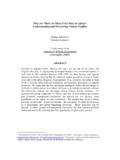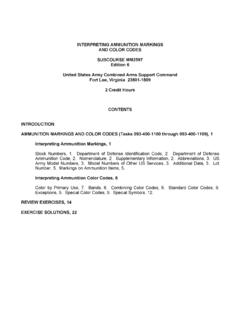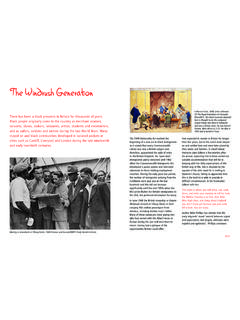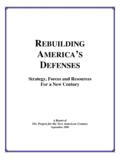Transcription of WHY WE ARE FREE - OUR ENGLISH HERITAGE
1 "WHY WE ARE FREE - OUR ENGLISH HERITAGE " Dr. W. Frank Steely President Northern Kentucky State College I am not unaware of the honor you do me in inviting me to have this part in your meeting of the Society of Colonial Wars. It is of profit to me academically as it forces me to verbalize some of the ideas I have long espoused in the classes I have taught in American History over the past 20 years. No one of you, including my colleague Max Dieffenbach, could have been aware of the emphasis I place on our Colonial (that is ENGLISH ) background in the shaping of America. How appropriate tonight that this has been a central thesis of my teaching. Some years ago, as the story goes, an American tourist at Oxford asked a caretaker what made the grass on the quads so green and beautiful.
2 The caretaker's response states simply the basic point I would elaborate in these remarks: he said, "That comes from clipping and rolling it every Thursday afternoon for seven hundred years." America enjoys freedom and self-government today not because of the influence of the frontier upon her history. Other nations, including Russia and Argentina for example, had analogous frontier experiences which obviously failed to produce democracy or liberty in those nations. There is nothing unique about the fields and forests of North America that destined their settlers to develop free institutions while settlers in the wildernesses of Central and South America failed to do so. Nor was it our Revolutionary experience that brought freedom to our new land. Allow me to tell you another little story to illustrate my point.
3 Two Americans vacationing in Vermont were discussing the role of the American Revolution with its many settings in the New England they were visiting, in bringing freedom to this country. One of them challenged the other's emphasis on the Declaration of Independence, the Constitutional Convention of 1787, the Bill of Rights, and other American institutions. He asked his friend to take a drive with him. As they sped over the mountain roads of New England he turned to the champion of "1776 and all that" and said, "Do you not still feel as free as when we began our conversation." When the second man agreed that he did, the driver observed, "For the last twenty miles we have been outside the United States in Canada." I doubt if many Americans would challenge the fact that Canada and other countries of the British Empire and Commonwealth enjoy as much freedom as do those of us who broke with England in 1776.
4 The answer, therefore, to the query "Why are we free" must lie in the history of the development of free institutions in our mother country prior to and during our Colonial era. For, although we are the cultural heirs of all of Western Europe, we are more particularly the political heirs of Great Britain. We are about as ENGLISH politically as we are linguistically. And this is to acknowledge the modification of ENGLISH institutions on the American frontier. A point made by that great historian of the frontier, Frederick Jackson Turner; but unfortunately overemphasized and exaggerated by some of his disciples. The beginnings of American political institutions are to be discovered, indeed, some seven hundred or more years ago (as our story of the grass on the Oxford quads suggests) in Medieval England.
5 The Norman King Henry II in the middle of the 12th Century sent judges on assize throughout the realm. The precedents they established in their decisions became common to all of England, thus we have the beginning of the Common Law, still taught and practiced in the United States and in other countries which share the ENGLISH political HERITAGE . An early assertion of the concept of government under law was the Magna Charta (or Great Charter) extracted from King John by the barons at Runnymede in 1215. But the most portentous development for man's political future were the beginnings of representative self-government in the ENGLISH Parliaments of that Medieval Age. The word Parliament comes from the practice of the kings to summon representatives from all parts of the realm to have "deep talk" or to "parley.
6 " As in the case of most historically significant developments it is impossible to fix the date of the first Parliament which may be called antecedent to our Federal Congress and to our State Legislatures. In 1295 Edward I summoned his "Model Parliament" with two representatives from each borough and from each shire or county, but there had been forerunners of these groups who would one day evolve into the present House of Commons. Parliament was an outgrowth of the kingly power. It re- presented a desire by the sovereign to get approval for additional taxes and sometimes generally to bring a counter force to bear against the nobility in his council. Certainly none of those Medieval or early Modem kings envisioned or desired the growth of this representative assembly into the most powerful legislative body in the world.
7 Little did their majesties realize the threat to their prerogatives posed by permitting these commoners to present petitions to "redress grievances." When such petitions were heeded and enacted into statutory law, however, the precedents for legislating were established. Lasting freedom is never achieved by a single act, nor is it guaranteed by official documents; it is built over the years and centuries by tradition or custom. There should be comfort for the fearful in this because it implies, and I think correctly implies, that freedom is not lost by single acts or momentary developments. In Medieval England were laid the foundations of other political institutions we Americans imported from our Mother Country. Local government at both the county (or shire) and parish (or township) levels began there.
8 Our "sheriff ' is a corruption of the "shire reeve." Although the parish as such had ecclesiastical connotations its vestrymen were more secular than ecclesiastical when they began the institution of the "constable" to maintain law and order. In the small rural town where I was born and reared the only paid public official was the "constable." The colonization of America came in the early Modern period. ENGLISH trading companies planted upon these shores. The Colonial term "freemen" meant "free of gild" or company and represented a development here analogous to the development in ENGLISH boroughs or towns. Freemen could take part in the affairs of local government. America was a product of Reformation England. Remember the central theme of the Reformation was the universal priesthood of believers (a foundation principle of democracy), and the rightful duty of free inquiry (a necessity to liberty) was the hallmark of Reformation leaders.
9 Roger Williams of Rhode Island taught Englishmen in England, such as Cromwell and Milton, as he taught Englishmen in America. He foreran John Locke in his emphasis on the compact or contract theory of government in place of the divine right emphasis. Williams believed that sovereignty resided in the people. Certainly when John Locke wrote in defense of the compact theory to justify the Glorious Revolution of 1688 in England he could not have foreseen the use of his writing, and even of his phraseology, by Thomas Jefferson as the latter authored our own Declaration of Independence. Thus, we used British theory to justify revolt against Britain. And in the years before 1776 we were claiming our rights as Britishers. James Otis' famous revolutionary pamphlet was entitled "The Rights of the British Colonies Asserted and Proved.
10 " We will not here attempt to weigh the justice of our revolt against the Mother Country. Suffice it to say that more mature historical study has corrected the super patriotic distortions of our National youth and of a century of Irish immigrants. We know now that George III himself was not the tyrant Tom Jefferson said he was (I doubt if Tom really believed it when he wrote it.) Journalists of the Revolutionary era were as sensational as journalists of our day. The Stamp Act was really not that important. It penalized the two most loud-mouthed groups in society, the lawyers and the newspaper men. The result was such a disproportionate amount of attention to the Act in the Colonial press that later generations of American historians, by using contemporary newspapers as their sources, have perpetuated the distortion.






